TEA SHACK NEWS
59%
44%
respondents have felt uncomfortable by locker room chat or banter. said they don’t think the offshore environment promotes respect and inclusion despite this being a core value on many assets.


59%
44%
respondents have felt uncomfortable by locker room chat or banter. said they don’t think the offshore environment promotes respect and inclusion despite this being a core value on many assets.

Working offshore can be a challenge, spending weeks away from home on an installation, isolated from family and friends. Being decent people, we know we should try to make that time a positive and rewarding experience.
But there’s a more selfish reason for this: boosting others’ well-being also improves your own.1
One way of doing that is to make people feel included, part of a valued team2, all striving towards the same goal (even if that’s just the chopper home). But if you’re in the minority or feel marginalised it can be difficult to feel part of a team, with many small signals that make people feel excluded

Some of these are physical, like the
specific challenges still faced by too many women with PPE not fitting appropriately and companies still issuing them men’s PPE. This makes working life at-best uncomfortable and at worse, less-safe. It can be very difficult to speak up and request new boots or a jacket that fit more appropriately. But if someone is checking in with them, or providing support, it becomes a lot easier.
Other signals that make people feel excluded are verbal.
In our Inclusive Offshore Working3 survey, open to the whole workforce, we found the statistics displayed in the above graphic.
No one wants to stop banter, it’s a valued part of offshore life.
1 www.forbes.com/sites/bryanrobinson/2020/09/30/why-doing-good-boosts-health-and-well-being/ 2 cultureplusconsulting.com/2018/04/28/inclusion-nudges-developing-inclusive-work-settings/ 3 www.axisnetwork.co.uk/inclusive-offshore-working

But sometimes banter over-steps the mark, we’ve all seen it and sometimes we’ve been part of it.
It depends on the situation, but stepping in with a ‘Mate, that was a bit off……’ or ‘C’mon, we’ve got work to do……’, can make all the difference to the person on the receiving end or even those witnessing it.

If you make the mistake and step over a line, owning it and apologising can make a massive difference
The most important thing to do is to recognise that people are not all the same physically and emotionally, that there’s huge value in being different. There is one thing that almost every person wants, and that’s to feel like they belong.
(continuation from page 1)
To support this is the recent launch of a Mental Health and Well-being Charter, a drive being led by the North Sea Chapter of the IADC. The creation of the special taskforce underlines the importance of the mental health and safety of those working in our industry.

There are still systemic barriers to inclusion, and companies are starting to tackle these. But on a day-today basis, sweating the small stuff matters.
So, take time out, reflect each day and check the people around you are being respected, included and made to feel part of the team.
You’ll be boosting their feelings of positivity and stopping that slow mental health decline – and helping yourself in the long run.
We were delighted to announce the launch of our new Wellbeing Workgroup on the first day of SPE Offshore Europe 2023. In a partnership event with Stork, Allan Errington of ESS and Wellbeing Workgroup Co-chair shared the group’s purpose and aims.

Wellbeing has many mental, physical, social, financial, and environmental aspects. These aspects are interdependent and influence each other. When one part of our wellbeing is out of balance, the others are affected.
The Wellbeing Workgroup aims to create a culture that prioritises health and wellbeing, fosters resilience, and supports our workforce’s emotional and psychological needs. Together, we strive to build a sector where individuals can thrive both professionally and personally.
Sun, 3 Dec 2023 15:00 - 16:00 GMT
Hosted on a Sunday afternoon, use this virtual quiz to make safety meetings interactive and fun by competing against energy worksites across the UK.
There MUST be at least one employee of a member company in each team.
Sign up now!
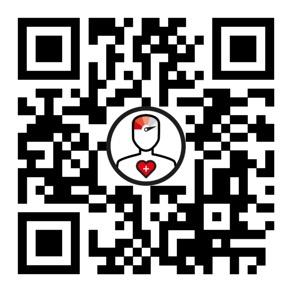
Thanks to Stork for enabling an evening to champion and support wellbeing in the workforce.
Watch our short video to find out more about the new Wellbeing Workgroup from Co-chairs Allan Errington, HSEQ Manager of ESS and Laura Hardie, Occupational Health and Wellbeing Advisor at Bilfinger UK.
a mental health expert to understand that when you place an already highrisk gender and age group in remote and isolated locations with continually adverse weather patterns, where living and work-spaces are confined and individuals are separated from family and friends with limited opportunity to release tensions that inevitably accumulate, you have an environment that requires exceptional care.
Graeme Kinghorn Chief Executive of Mental Health Aberdeen
A recent survey by the SOS Foundation1 of onshore and offshore remote rotational shift workers confirmed one of the worst-kept secrets in the North Sea, namely that rotational working offshore puts you at a much higher risk of mental ill-health than those who fulfil an onshore shift job and a significantly higher risk than those who undertake onshore 9 – 5 roles. But we all knew that already, didn’t we? Previous anecdotal accounts on this subject certainly pointed to this so let us accept these new statistics as being correct.
Considering the offshore workforce is predominately male and between the age of 25 – 55, you don’t need to be
If you then consider that only 40% of managers believe that treating mental health equally to physical health is important, see Dräger research2, and that employees fear talking about their mental health openly for fear of losing their jobs and being judged as vulnerable, I will contend that the conditions for a perfect storm have been created.
Realistically, nothing can change the physical working environment offshore but mitigating the impact of the causal factors above can be achieved. I can point to many studies that build a solid business case for investment in positive mental health and well-being initiatives and more importantly the cost of not doing so. But this is not a zero-sum game where employers lose out and employees win, I genuinely believe that everyone can benefit from prioritising mental health and well-being with the fundamental caveat that individuals must take personal responsibility for their own mental health.
Most disaster movies start with a figure in authority dismissing the advice of scientists or experts and we all know what then happens as a result. Let’s ensure as a community that we don’t ignore what is happening right now to the mental health of our colleagues and friends.
For further information or to access support please visit www.mha.uk.net
So, what do you do if you are concerned about how a colleague is behaving at work or if you are concerned about how you are feeling? Every company will have a set of procedures for dealing with a situation like this but the most important step you can take is to talk, either to the person you are concerned about or to a colleague if it is about yourself. Find out if there are Mental Health First Aiders or Champions in your company and talk to them.
Helplines like the Samaritans 116 123 offer a 24/7 confidential listening service and Breathing Space 0800 83 85 87 is a similar Scottish service.
Mental Health Aberdeen (MHA) offers free confidential counselling, call 01224 573892 during normal office hours Mon – Friday. There is always someone to talk to, at any time of the day or night.

I have been in the industry for 20 years now spanning many different on and offshore installations and I now find myself on the Culzean platform, TotalEnergies newest platform in the North Sea and unlike any I have been on before, largely due to the fact it’s only 5 years old. I have come from a land of rust and corrosion and have now found myself on a shiny new platform with single-person cabins and world-class food. Ultimately though, what I have learnt is that the job by and large is the job, no matter where you are it’s the people who can make or break a platform.
My day starts roughly around 04:45 am and after 20 years starting at 7am, the Culzean shift starts at 6am and I am feeling this early start! It’s only my second trip on the Culzean so my body is still adapting. I am also on a Friday crew change after decades of a midweek check-in, arriving onboard to fishy Friday has really messed up my internal clock!
After a light breakfast and firing off some WhatsApps to my partner Daisy and my children to wish them a good day I start the day with a team meeting. I have a core inspection team I manage but often have up-man techs onboard. RAD techs, outboard rope access techs, crane inspection teams - the Culzean is a busy place! I go through any safety alerts and the high-level safety
observations raised in the last 24 hours then go around the team and set out the plan for the day. I want to get a feel for how my team are feeling, nobody knows if someone has just received bad news from home or if they have something on their mind. When I first started offshore if you weren’t on your game you would just be told to sort it out and man up, thankfully those days are gone.

No two days are the same offshore as we can have a break into our plan at any time. It’s a new platform but all that glitters isn’t gold, it’s not immune to breakdowns and failures but the team onboard are very good at informing me of any integrity concerns and I always say, 100 pairs of eyes work better than just mine. My day is split between what seems like never-ending Teams meetings some days and dealing with on or offshore requests. Another aspect of my life offshore is that of a mental health first aider. As I am new to the Culzean I am meeting new people all the time, but I have made it my mission to always be approachable and to always take the time to say hello, learn people’s names and make an effort to become part of their world offshore. On my previous rig I was an elected safety rep, mental health first aider and on the welfare committee. I am the new guy on the Culzean but I know I can also use that to my advantage or more importantly people can use it to
theirs, sometimes it’s easier to talk to a stranger if you have something on your mind. I am a big believer in looking after each other offshore. It’s easy to say if someone needs help they should just speak out but I also know how hard that can be, so I am making it a point of just starting that conversation with someone - Hey how you doing, how’s it going, are you OK? Sometimes just asking those simple questions can start a conversation that can go much further than you can imagine. My primary role offshore is keeping that high-pressure gas inside the pipework and ensuring the integrity of the plant but since losing a close friend to suicide in 2021 I have another goal in life, and that’s to let everyone know that they are not alone. Offshore can be a lonely place when life gets tough, you can be in a room with 20 people and still feel alone. When someone is off ill and a collection sheet gets put up its filled in days, we look after each other offshore. We all make sacrifices to work in the environment we work in and sometimes we just need someone to talk to and for someone to listen.
My day is done by 6pm, I go to the gym on my breaktimes to protect my own mental health and to stop myself from dining out on the amazing selection of food they provide!! I unwind by catching up with loved ones and maybe getting a sauna before getting ready to start again the next day.
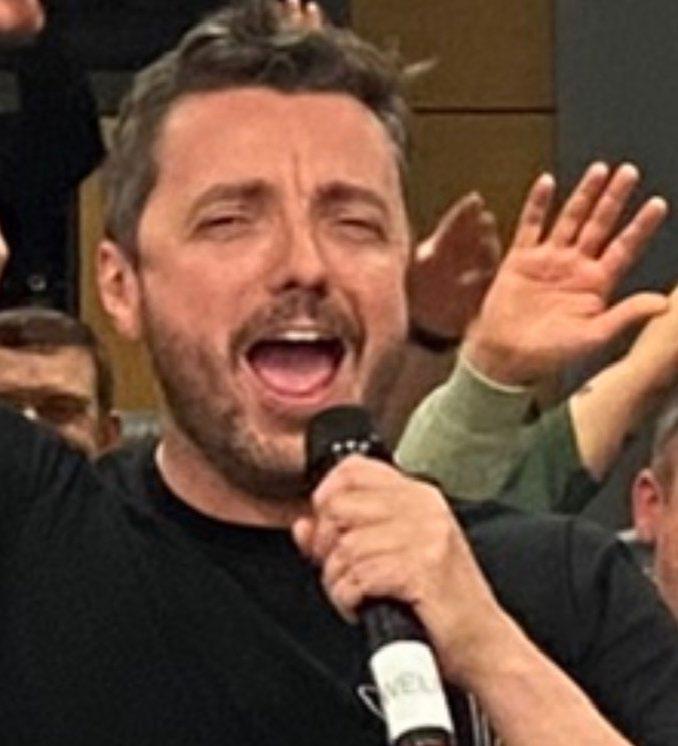
Finding staff in some trades has been challenging. It is essential that personnel ‘rig hopping’ have full entitlement of rest between trips. If there is ever a requirement to deviate from this, it MUST be fully Risk Assessed for fatigue.
Ensure that if you are de-mobilising after night shifts that you do not make long car journeys straight away. Raise this issue with your employing company.
Working in warm weather poses an increased risk to heat exhaustion and dehydration. Ensure regular breaks and water intake is planned in.
It is becoming more common for maintenance to be done on live ‘hot’ plant rather than shutting these down. The heat of the plant must be considered alongside climate conditions to mitigate injuries.
Anyone exposed to Hand Arm Vibrations should be under appropriate surveillance by their employing company.
There are two limits to be aware of the Exposure Action Value (EAV) of 100 points and the Exposure Limit Value (ELV) of 400 points.
Use the “Hierarchy of Control” to eliminate, substitute and reduce the risks.
All medication needs to be declared for the Offshore Medic to review.
Any changes to medication or medical status must be reported to your employing company.
Ensure you have enough medication to last the duration of the trip.
Clammy skin, dizziness, headache, muscle cramps, extreme thirst, excessive sweating, dehydration, fainting, nausea, vomiting, weakness, decreased urine output.
• Using the “hierarchy of control” is the most effective mitigation measure.
• Workplace limits are in place to control exposure time to certain substances.
• Ensure COSHH assessments are fully complied with and questioned if better ways of working are identified.
• Focus on the task and how the substances are being used rather than the substance itself.
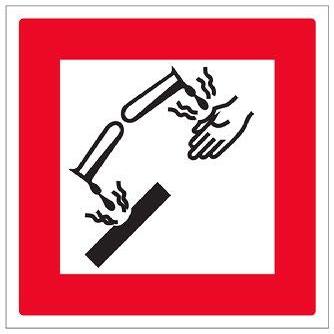
Do you see yourself in the table below?
If you are in the Surviving, Struggling or In Crisis columns, take your time to reflect and discuss with your family, friends, workmates and managers. Share your problems and build strategies to help.

For more information see our Mental Health webpage www.stepchangeinsafety.net/workgroups/wellbeing/mental-health/
“I can’t survive this”
Disabling distress & loss of function
Panic attacks
Unable to fall or stay asleep
Intrusive thoughts
Thoughts of selfharm or suicide
Easily enraged or aggressive
Careless mistakes an inability to focus
Feeling numb, lost or out of control
Withdrawn from relationships
Dependence on substances, food or other numbing activities to cope
“I can’t keep this up”
Persistent fear, panic, anxiety, anger, pervasive sadness, hopelessness
Exhaustion
Poor performance & difficulty making decisions or concentrating
Avoiding interaction with coworkers, family, & friends
Fatigue, aches & pains
Restless, disturbed sleep
Self-medicating with substances, food or other numbing activities
“Something isn’t right”
Nervousness, sadness, increased mood fluctuations family, & friends
Inconsistent performance
More easily overwhelmed or irritated
Increased need for control and difficulty adjusting to changes
Trouble sleeping or eating
Activities & relationships you used to enjoy seem less interesting or even stressful
Muscle tension, low energy, headaches
“I got this”
Calm & steady with minor mood fluctuations
Able to take things in stride
Consistent performance
Able to take feedback & to adjust to changes of plans
Able to focus
Able to communicate effectively
Normal sleep patterns & appetite
“I feel positive”
Fully engaged
Cheerful
High performance
Energetic
Realising full potential
Joyful
Looking forward to the future
Supporting the physical, emotional, mental health and wellbeing needs of all our employees is a top priority at Stork. To build upon the good work already being delivered, we introduced our own in-house mental health first aider training, named ‘WeCARE Colleagues’. The resources are designed to raise awareness and encourage engagement through topics such as health and wellbeing, corporate social responsibility (CSR) as well as diversity, equity and inclusion (DE&I).
WeCARE is a simple principle, encouraging individuals to be the reason our colleagues feel supported in the workplace. The programme aims to improve mental health and wellbeing across our organisation and provides our WeCARE Colleagues with guidance, training and materials. All of this is to further enable our people to have two-way, open conversations with their colleagues, provide support and signpost improvements.
To help address the stigma associated with mental health in the workplace, each of Stork’s physical first aiders also took part in our WeCARE programme. Stork’s goal was to bridge any divide between the physical, mental and emotional health support available at our worksites; there is only health and no one area is more important than the other. WeCARE offers reassurance that employees can feel comfortable seeking help for any health or wellbeing related matter, regardless of its nature.
To date, the initiative has been a huge success, with a diverse range of colleagues across all of our locations (client sites, regional service centres and warehouse facilities) undergoing training, as well as our senior management team completing the coaching course.



To further encourage participation, we introduced the ‘Safer Together Triathlon’ which offers a series of different challenges and events for our staff to get involved in throughout the year. The three areas of the triathlon are based on Safer Together’s key principles; We Care, We Protect and We Support. By choosing to
get involved employees can earn points, prizes and demonstrate their commitment to being ‘Safer Together’ in a fun yet competitive way.

Since its launch, hundreds of Stork employees have participated. The inclusive and competitive spirit that the Triathlon provides has helped to drive contributions in countless initiatives. Teams work together, support each other and even encourage participation from more remote areas of our business. It ensures that we create a healthy community spirit, which our employees want to be a part of.


Looking forward, our WeCARE colleagues continue to provide vital support across our UK business with training of new staff members ongoing. Having successful initiatives in place, such as our WeCARE Colleagues and the Safer Together Triathlon, contributes to Stork’s award-winning culture - one of trust and acceptance amongst our employees.
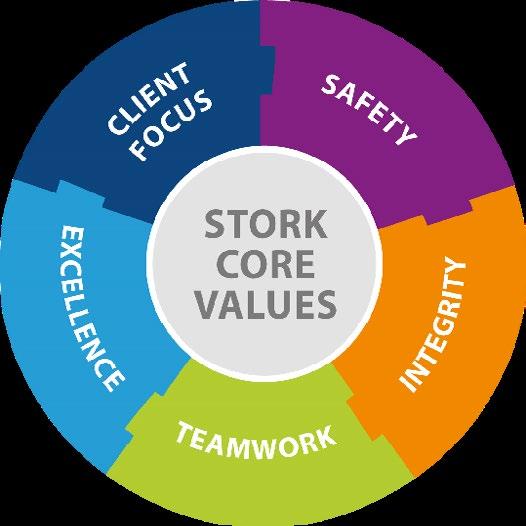
Someone once said, ‘You are only as young as your spine.’ But what did this very wise person mean?
Many of us lead ever-increasing sedentary lifestyles, but as humans we thrive in a mobile body. Remaining immobile for long periods causes our body to deteriorate. However, there are also those bodies at the other end of the spectrum who move the same way over and over again. Overloading one area day after day will also cause our body to deteriorate. Both instances will often result in pain and discomfort and frequently this is in our back. Without intervention, eventually it becomes so bad our ability to move about doing everyday things becomes so restricted you would think we were old beyond our years.
So what can we do to prevent the deterioration? Well it is vital to keep the body active throughout the day, moving well in all directions, every day, even if it’s just doing a few simple stretches after sitting for a long time.
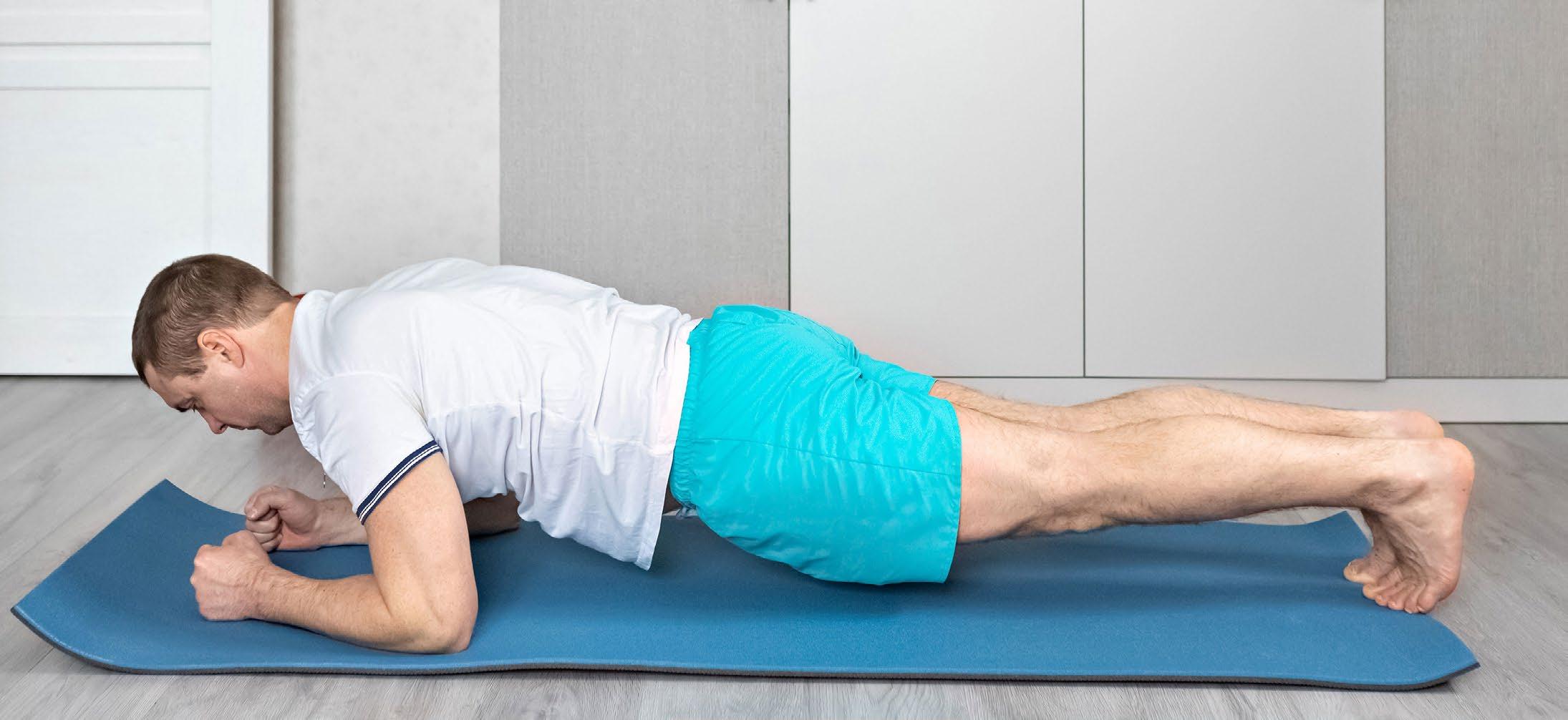
Pilates or yoga is a fantastic way to rebalance the body and reduce back pain. Both aim to mobilise and strengthening all muscle groups to help encourage your body into a better posture, to move freer and with less strain on your back. As an added bonus, both practices emphasise intentional breathing and mind-body awareness, so provide as much mental wellbeing benefits as physical health benefits; just try thinking about anything else while focusing on performing the perfect pilates exercise!
When you can move better there’s a reduced risk of injury and less day-to-day pain. Incorporating good movement into your daily routine will even improve your quality of life and keep you feeling young! Plus if it’s good enough for Mo Salah, Tiger Woods, Lebron James and Andy Murray, it’s good enough for you!

Following our recent visit to Blackpool to meet with member company Eni, we were delighted to find out about the formation of ‘The Wednesday Club’, created to support colleagues and their mental health.

We spoke to Brian Devaney, Health Safety Environment Advisor & safety rep on the Eni Douglas platform, to find out more:
“Since rolling out mental health videos produced by Step Change in Safety, both myself and my back-toback have undergone mental health awareness training courses. This then led to several safety reps attending the courses and we subsequently had posters produced to highlight who the mental health first aiders and first responders are to all crew members.
As a result of this, some crew members have sought ‘conversations’ with us, but primarily with the medic. Between the medic and HSEA team, we proposed to the OIM that we organise an hour, once a week, where
the crew members can just come together, and discuss anything on their mind, all in confidence. This was when ‘The Wednesday Club’ was formed.
The feedback from those who have attended has been terrific and we hope this will spread to other members of the crew and encourage them to attend.
We also realise that this event will come with a certain ‘stigma’ from some parties, so we don’t hide away. We sit in the galley, cans of pop and a chocolate bar and discuss anything that people want to talk about. Some people talk openly about topics they are encountering around mental health or have experienced, whilst others just sit and listen.
We have also decided to do other things in that hour, just to mix it up a bit, maybe one week some stretching exercises for example. It’s early days for ‘The Wednesday Club’ but if we can help one person get out of their cabin for an evening or stay off the Wi-Fi
Brain commented, “As well as the club we also have groups of the crew who like to get involved in exercise. We have a number of crew members who, maybe 3 or 4 times per week, drill jiu-jitsu as well as boxercise classes. We get high attendance for these events and all newcomers are welcome.
This is supported by the platform and welfare and funding has helped purchase matting and boxing pads and gloves. The crew are mindful that we are on an offshore establishment, so the drills are controlled in order to avoid injury to personnel. The mental health benefits that the workforce appear to gain from this are fantastic and everyone states how much better they feel when they take part.
Vendors who are passing through who have attended often comment on the unique camaraderie that exists during these events, not witnessed when they have mobilised to other offshore assets.”
just for that hour and take something away from just speaking to other people that they may only see every so often, then it’s been a successful venture.”
Test your safety knowledge in our online quiz. Ten questions against the clock, who will be the quickest? Scan the QR code or click this link to participate. Why not use this as a safety meeting icebreaker?
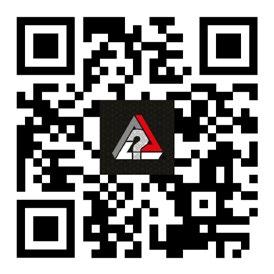
1. Who was meant to headline Glastonbury 2020?
2. What is the capital of Australia?

3. What is the highest-grossing Pixar film?
4. Who is the richest man in the world?
5. What is the capital of Alaska?
6. What were the pseudonyms originally used by the Brontë sisters?
7. A number one followed by one hundred zeroes is known by what name?
8. What type of fish is Nemo in Finding Nemo?
9. In Dirty Dancing, what is Baby’s first name?
10. Who wrote Snow White And The Seven Dwarves?
11. What alcohol do you traditionally use to flame a Christmas pudding?
12. How many people have walked on the moon?
13. The Stadium of Light is home to which English football club?
14. How old do you have to be to stand for US president?
15. In Zootopia, what kind of animal is Flash?
16. What is the capital of Peru?
17. Who does the voiceover on Love Island?

18. In which year was Joan of Arc burned at the stake?
19. Tom Cruise is an outspoken member of which religion?
20. What is the middle name of Angela Merkel?
Answers to the general knowledge quiz can be found by clicking this link or view at the bottom of this page, no cheating!